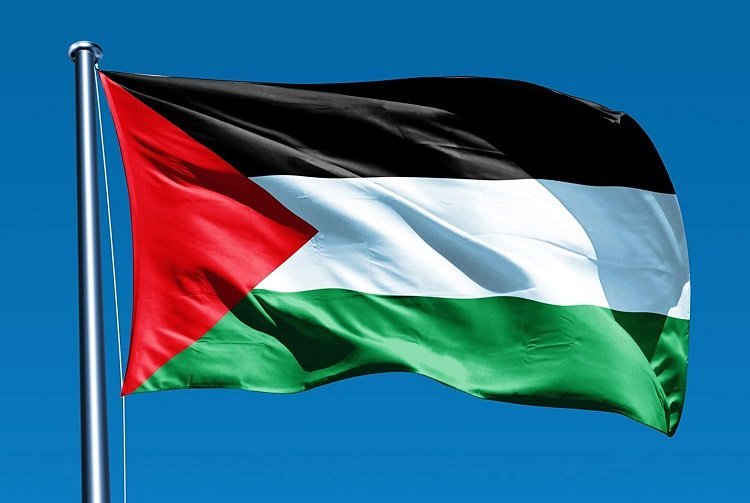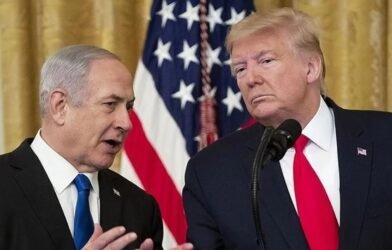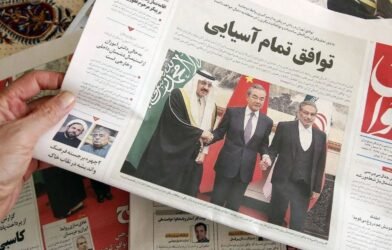Subtotal $0.00
India's relationship with the United States developed at a rapid pace during the administration of US President George W. Bush and under President Barack Obama, at the expense of the relationship with Pakistan, which was seen as part of the Western axis, unlike India, which long led the Non-Aligned Movement and, despite its declaration of neutrality in the conflict between NATO and the Warsaw Pact, was closer to the Soviet Union. These good relations have continued with the Russian heir, as India depends for about 70% of its armament on Russian weapons, which it desperately needs to counter its nuclear neighbors, China and Pakistan.
Perhaps one of the reasons for the development of the relationship between the two parties is the United States' conviction of the decline in Pakistan's strategic importance after the collapse of the Soviet Union, and its presence with its forces in the region to carry out its tasks by proxy, which made the Pakistani role a marginal role for it, and the transformation of the American position on China, which was using China against the Soviet Union in order to weaken the communist camp, has ended and China represents a strategic threat to American superiority and a direct threat to India, so American and Indian interests came together after a long separation to face China, and one of the results of this was the establishment of the COA grouping.
However, this special relationship between the two partners has recently entered a real test, when the Americans put their Indian partners to the test of choosing between them and their traditional Russian allies. We recently followed the American demand by President Joe Biden to Indian Prime Minister Modi to reduce the quantities of oil that India imports from Russia, and he considered that India cannot assume the global position it desires if it continues these practices. This happens after India's reluctance to condemn the military operations in Ukraine at the United Nations.
On April 1, the Russian Foreign Minister visited New Delhi and agreed with his Indian counterpart that trade exchanges between the two sides would be in the two local currencies, and Lavrov talked about facing Western sanctions by heading towards Asian markets, including India, and it is worth noting that the population of India is one billion and four hundred people, as is the population of China, which also stands by Russia in one way or another, which means that we are talking about almost half the population of the planet if we add the other Asian markets that Lavrov aims to expand his country in, so the success of the Russian move makes the Western blockade of
Following the video call between Joe Biden and Narendra Modi, the Indian foreign minister and defense minister headed to the United States. The visit is apparently aimed at avoiding any damage to the relationship between the two countries against the backdrop of India's position on Russian military operations in Ukraine, especially with America's insistence on bringing India fully into the American camp and India's reluctance to consider that its relationship with Russia does not affect American interests.
The Indians see the relationship with Russia as a golden opportunity that must be seized - at this difficult time - and they see nothing wrong with taking some risks with the United States, because they fully realize that the United States' need for India is a strategic need that will make it overlook any differences that may arise from the India-Russia relationship between the two parties.
The Indian response to America's demands reflected New Delhi's dissatisfaction with U.S. pressure. This was evident in the Indian foreign minister's response to American journalists that India imports as much Russian oil as Europe does in one day or in one afternoon, and India called on the United States to start first with Europe, its immediate ally.
India is fully aware that the confrontation between Russia and the United States of America is not the major confrontation, there is a postponed confrontation with China that is definitely bigger and more dangerous, and the United States of America has established during the past years, for this purpose, a group of alliances, the most important of which was the Quad Group, and India is the largest country included in the alliance, and the most influential in it due to its geographical location adjacent to China, and its possession of the largest army in the alliance and is considered a rapidly rising economic power, all these advantages will make India's influence very large in this confrontation, and therefore the United States cannot afford to give up its relations
India, which used to enjoy distinguished historical relations with Iran and is a pivotal regional state, declined its relations with Iran as a result of its acquiescence to U.S. pressure and its response to the economic sanctions imposed by President Trump on Iran, when New Delhi received promises from Washington that any shortage of energy supplies coming from Iran would be compensated by Saudi Arabia and the UAE, and this was done, and thus the Indians accepted this type of barter but lost the Iranians to a large extent, and after that we saw a change in the Iranian position on Kashmir issue, through sharp statements by Leader Ayatollah Khamenei, which meant that the position
As with Iran, the Americans have promised India that if they stop importing oil and gas from Russia, they will help them avoid any shortages in energy supplies, and the natural assumption is that this supply will likely be through Saudi Arabia and the UAE. But we know that US-Saudi relations today are not at their best, nor are they at their best with the UAE. Indeed, we have witnessed chapters of flirting between the Gulf states and Russia that did not stop, followed by timid positions critical of Russia under US pressure. This means that U.S. promises to India to compensate for the shortage through the Gulf states are questionable.
The issue of Indo-Russian relations is not limited to the energy file and military cooperation only. The Indians view the relationship with Russia as a golden opportunity that must be seized - in this difficult circumstance - and they see nothing wrong with taking some risks with the United States, because they fully realize that the United States' need for India is a strategic need that will make it overlook any differences that may result from the Indo-Russian relationship between the two parties












